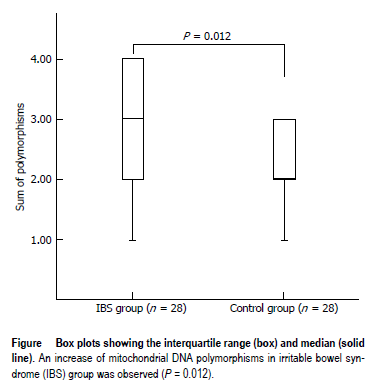Article
Polymorphism of Mitochondrial Genes May Trigger IBS-D
Author(s):
A group of researchers has identified two polymorphic sites on mitochondrial ATP (MT-ATP) genes that may play a significant role in the functional gastrointestinal (GI) disorder.

After comparing mitochondrial DNA (mDNA) mutations in colon and small intestine specimens extracted from patients with diarrhea-predominant irritable bowel syndrome (IBS-D) and healthy individuals, a group of researchers from the University of Texas Medical Branch in Galveston, TX, and two hospitals located in Beijing, China, has identified two polymorphic sites on mitochondrial ATP (MT-ATP) genes that may play a significant role in the functional gastrointestinal (GI) disorder.
For their study published in the June 28, 2013, edition of the World Journal of Gastroenterology, the nine authors performed colonoscopies and biopsies on 28 patients who met Rome III criteria for IBS-D and 28 control subjects, all of whom were enrolled at the Chinese PLA General Hospital between June 2009 and May 2011.
Investigating the MT-ATP 6 and 8 polymorphisms in those colon and terminal ileum samples, the researchers discovered that the cumulative polymorphisms in MT-ATP genes were “increased in IBS patients when compared with healthy controls, (and) the difference in percentage of missense polymorphisms between the groups was statistically significant.” (Figure)

However, in the IBS-D group, the researchers found no correlation between the presence of the mDNA polymorphism and IBS symptom duration. Additionally, the mDNA polymorphisms detected during the study were neutral, rather than pathogenic.
“Accumulation of mDNA polymorphism may play a role in IBS pathogenesis; however, data are limited on functional studies of neutral polymorphisms, (so) how these neutral polymorphisms are involved in functional diseases such as IBS-D remains unknown and further research is needed,” the authors noted.
Regardless, the researchers concluded that their results show “cumulative polymorphisms in the MT-ATP genes are associated with IBS-D,” which they said will have “important implications for future research on the mDNA genome in IBS.”





